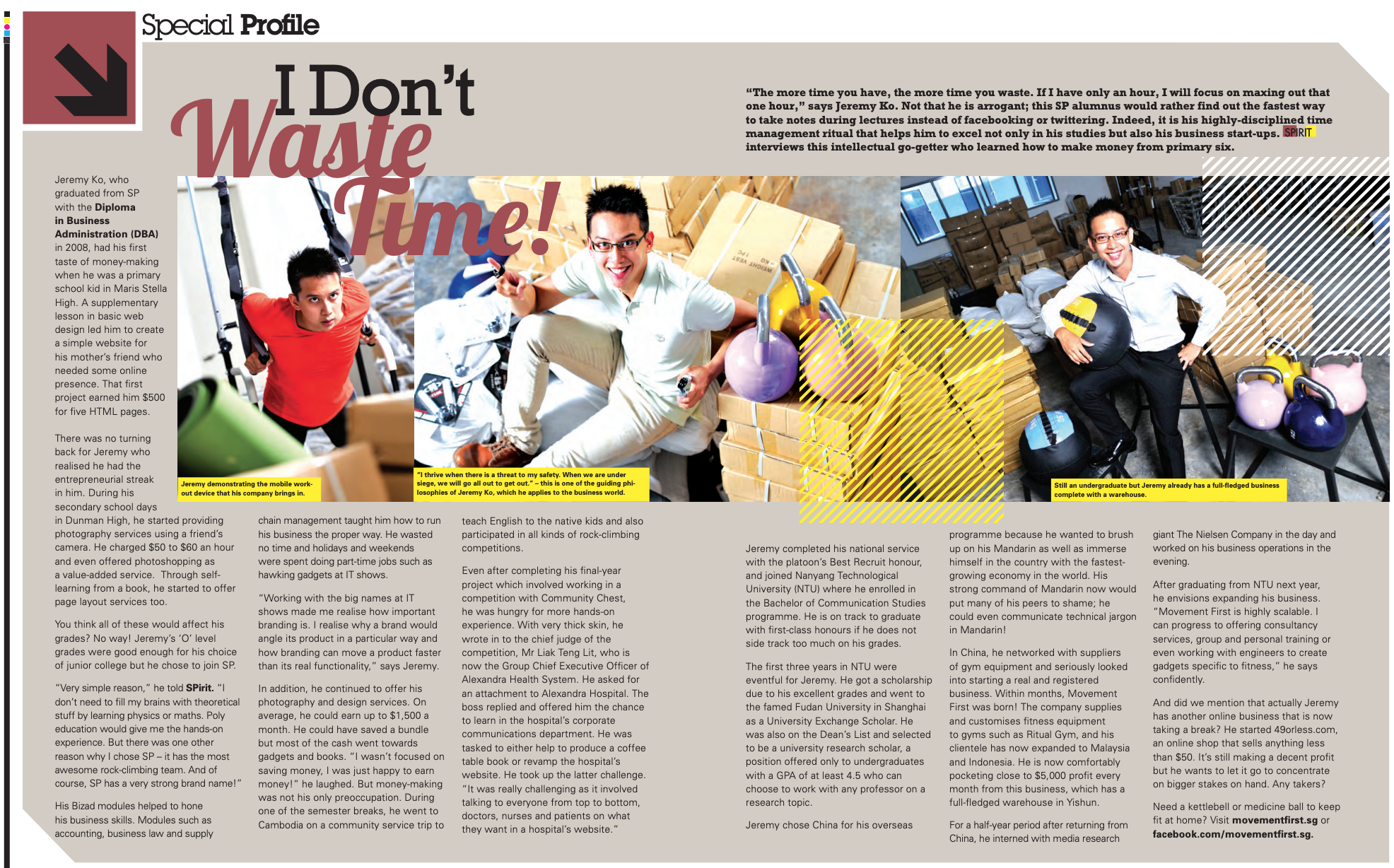I first encountered “Rich Dad, Poor Dad” at the age of 14. Back then, I was impressionable and took its advice to heart, particularly its concepts on cash flow, assets versus liabilities, and the mindset of business owners. Luckily, I didn’t have the cash to dive into leverage at that time, which in hindsight, was a blessing as I later learned how to use it judiciously.
The book’s influence, combined with my upbringing, made it hard for me to grasp why subjects like Higher Chinese, particularly reading classics like Dream of the Red Chambers, or balancing Chemistry equations were important. Although I wasn’t struggling with these subjects, their real-world application seemed elusive. My aversion to Chinese, in particular, would come back to haunt me when I needed to communicate with my factories.
Around the age of 15, I told my parents that if O-Levels didn’t seem relevant to me, A-Levels would probably be even less so. I was already working part-time, earning $100 per hour doing web design, or making thousands per event by taking and printing photos. I felt my earning potential already surpassed that of a fresh graduate.
With a keen interest in business, I chose to attend Singapore Polytechnic’s School of Business. My decision was driven by convenience—the polytechnic was the only one with an MRT station right next to it. While most of my friends went on to Junior College after O-Levels (I was among the last batch before the thru-train system), I opted for a different path.
Going to SP turned out to be one of the best decisions of my young life. Academically inclined, I breezed through my coursework and exams with ease. This left me with ample free time, which I devoted to rock climbing and continuing my freelance work in web and print design, as well as photography. This freedom allowed me to explore my interests and led to opportunities such as lead-organizing inaugural events for the school, which significantly enhanced my CV. Despite not hitting the books as hard as my friends in JC, I managed to graduate with a GPA of 3.2/4—a bit shy of the mark for local universities.
Fortunately, my robust portfolio helped me gain entry into NTU’s Wee Kim Wee School of Communication through their discretionary admission scheme. My entry grades were less than the10th percentile for my degree. Everything fell into place, and I even won book prizes and scholarships. The university even featured me as an outstanding graduate with posters across the campus.
If you’re academically inclined but struggle to see the value in A-Levels, and you don’t aspire to become a doctor or lawyer, I’d recommend considering the polytechnic route. It might just be the path that allows you to shine and explore your passions.


Leave a Reply